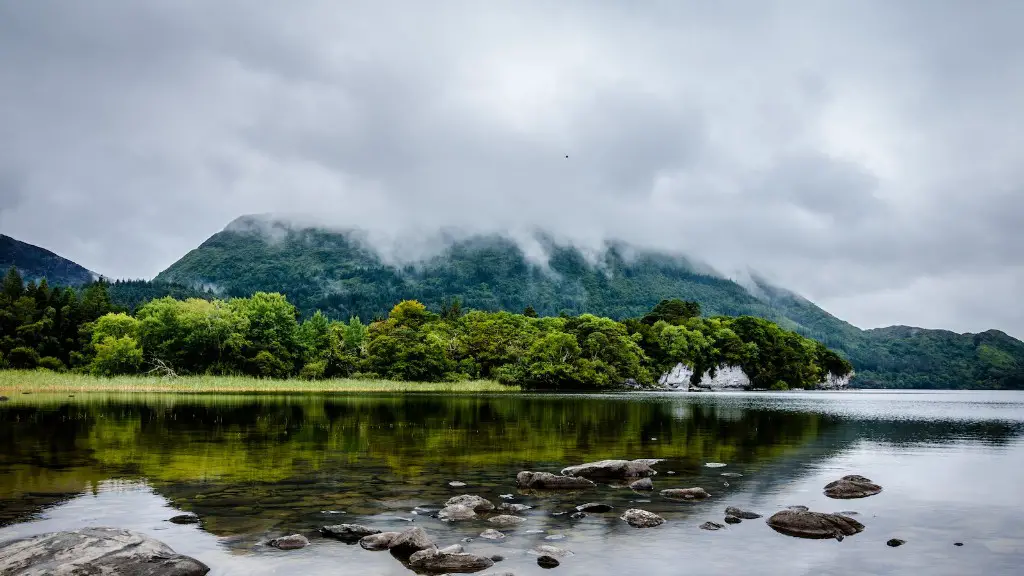Cultural & Spiritual Significance
The Mississippi River has a long association with culture and spirituality in the United States. From pre-European contact, indigenous tribes named the river, prized it for its abundant resources, and held ceremonies and festivals on its banks. This cultural history has been reinforced by the Mississippi’s inclusion in various works of music and literature.
In more recent decades, parts of the Mississippi have been declared a “National Heritage River” by the National Park Service and the Environmental Protection Agency to highlight its importance as an environmental and cultural kernel of American history and identity. In this context, scattering ashes along the Mississippi may have special spiritual and cultural significance, and many bereaved families have found solace in the practice.
Legality
Like any form of consumption or disposal of human remains, the legality of scattering ashes in the Mississippi River varies widely depending on the location. Scattering ashes in the Mississippi on public land falls under the respective laws of the state in which that land is located, with each state having its own regulations about the rights to disperse ashes on its public property.
However, federal regulations currently restrict ash scattering in navigable rivers and oceans, and the navigable waters of the Mississippi come under the jurisdiction of the federal government. The U.S. Environmental Protection Agency and the U.S. Army Corps of Engineers have designated the Mississippi River and over 200 other rivers and waterways as part of the national “Clean Water Act” in an effort to protect waterways from pollutants. This law means that it is illegal to scatter ashes in waters of the Mississippi that are still used for navigation and transportation, but it is not currently illegal to scatter ashes in waters that are no longer available for navigable use, such as natural rivers, streams and wetlands.
Environmental Impacts
The EPA has said that cremains are not considered a health hazard and pose no risk to the environment. However, there can still be negative environmental consequences of scattering ashes in the Mississippi. These include reducing water quality, eroding shorelines, and introducing foreign matter into the habitat of fish, birds and other wildlife that inhabit the river.
Furthermore, there is a growing concern that the trace elements and metals found in ashes can have long-term adverse effects on the environment if released into the water. For example, the medical implants and dental fillings in cremains have been proven to negatively impact the aquatic environment by releasing metals and radiological elements, such as Aluminum, Chromium, Zinc, and Cobalt, into the water.
Alternatives to Water Scattering
If you are considering the scattering of ashes on or in the Mississippi River, there are a number of alternatives you can consider. It is possible to mix ashes with biodegradable compost, which will offer a more environmentally friendly way of giving the deceased’s remains back to the earth. If you want to keep some of the ashes for yourself, you can place them in a biodegradable urn or a commemorative vessel and place it in a living memorial, such as a flower patch or a tree grove. Both of these approaches are more eco-friendly than scattering ashes in a river or ocean.
You can also check with a local cemetery to see if they offer memorial garden plots, which are popular ways of remembering the deceased in an environmentally conscious way. Finally, you can contact a funeral home and ask about their green burial services.
Eulogies & Ship Launching
Scattering ashes in rivers and oceans has become a popular way of memorializing the deceased and honoring their memory. One way of respectfully scattering ashes into the Mississippi is by launching a small ship carrying the eulogy of the deceased. This is an effective way of having a private memorial and can be a symbolic way of paying tribute as the ship leaves the shore carrying the ashes of loved ones and sails off into eternity.
An alternative to this is to have family members and friends each read a eulogy or poem in turn as they scatter the ashes in the river. You may also wish to say some words of your own or offer a prayer to honor the deceased.
Memorial Keepsake
If you choose to scatter ashes in the Mississippi, you may want to keep a small amount of the ashes as a reminder of the loved one you have lost. To do this, many funeral homes have memorial keepsakes, also known as cremation jewelry or ash jewelry, which can be filled with a small portion of the ashes. This can be a nice way to always remember the person who has passed on.
Final Disposition of Ashes
Once you have chosen a location to scatter the ashes, remember that the final disposition of the remains is an important part of the process. It is important to take some time to reflect and pay your respects to the deceased before dispersing the ashes. This can be as simple as pausing for a moment to remember his or her life, or you could choose to light a candle and say a few words in remembrance.
Animals & Birds
Scattering ashes in the Mississippi can pose a risk to the area’s wild animals and birds. If birds and fish ingest the cremains, they can be poisoned or suffer other negative health effects. To protect these animals, you should avoid scattering large amounts of ashes in any single spot. Instead, spread the ashes out over a large area or even several areas if possible.
Furthermore, if pets may have access to the river or streams, it is advisable to keep them away from the affected areas, as even small amounts of cremations can be harmful.
Be Prepared
When scattering ashes, it is a good idea to be prepared for the unexpected. The weather and tide can change quickly on the river, and it is important to be aware of the possibilities and how to respond when the conditions change. As such, it is wise to bring a life jacket and a first-aid kit in case of an emergency.
It also helps to have a plan for dispersing the ashes, as the current of the river can be strong and unpredictable, and it is important to make sure that the ashes are properly dispersed. Finally, some states require that you obtain written permission from the relevant local agencies before scattering ashes in the river, so check with the local authorities before scattering ashes in the Mississippi to ensure that your actions are within the law.


